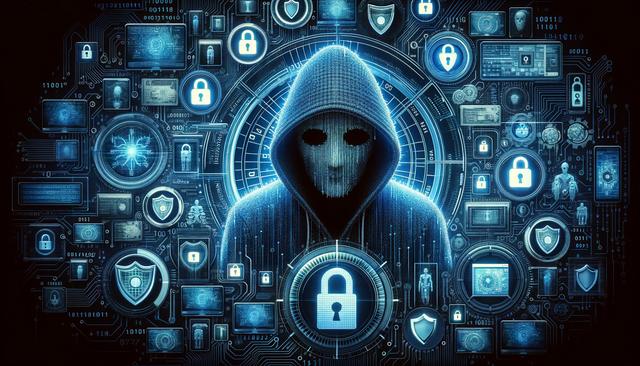Why Cybersecurity Matters Now More Than Ever
As the digital landscape continues to evolve, cybersecurity has become a critical component of modern business operations. From startups to multinational corporations, protecting digital assets is not just a technical necessity—it’s a strategic imperative. Businesses face increasingly sophisticated cyber threats, and the consequences of a data breach can be devastating, including financial loss, legal repercussions, and damage to brand reputation. As a result, organizations are turning to cybersecurity professionals to secure their systems and maintain compliance with industry standards such as SOC 2.
SOC 2 for startups, in particular, has become a key focus as they scale their technology and handle more customer data. Achieving SOC 2 compliance demonstrates a company’s commitment to security, instills customer trust, and opens the door to larger business opportunities. SOC 2 compliance companies are in high demand to help guide this process efficiently and accurately.
Building Your Cybersecurity Skillset
Becoming a certified cybersecurity expert requires a combination of technical knowledge, practical experience, and industry-recognized credentials. Whether you’re new to the field or looking to advance your career, there are numerous learning paths that can help you reach your goals. A solid foundation should include topics such as:
- Network and system security
- Cloud security solutions
- Endpoint protection strategies
- Data security principles
- Penetration testing techniques
Many professionals also gain hands-on experience through labs, simulations, and working with a penetration testing service provider to understand real-world attack scenarios. Certifications not only validate your skills but also make you more attractive to employers who seek qualified individuals to manage and improve their cybersecurity posture.
Cybersecurity Solutions for Small Businesses and Startups
Smaller organizations often face unique challenges when it comes to cybersecurity. Limited resources, lack of in-house expertise, and growing cyber threats make it essential to adopt scalable and practical solutions. Cybersecurity solutions for small business are designed to be cost-effective while still offering robust protection against common vulnerabilities. These solutions may include:
- Cloud-based firewalls and intrusion prevention systems
- Managed security services to monitor networks 24/7
- Endpoint protection for all devices accessing company data
- Employee training programs to reduce human error
Additionally, getting SOC 2 certification can be a key differentiator for startups and small businesses. It ensures that systems and processes meet rigorous security standards, which is increasingly important when dealing with enterprise clients or processing sensitive data in the cloud.
The Role of Managed Security Services and Endpoint Protection
As threats become more sophisticated and persistent, many organizations turn to managed security services to maintain a strong defense posture. These services offer continuous monitoring, threat detection, and incident response—often at a fraction of the cost of building an internal team. This allows businesses to focus on growth while ensuring that their digital infrastructure is secure.
Endpoint protection also plays a pivotal role in defending against breaches. With the rise of remote work and bring-your-own-device (BYOD) policies, securing laptops, smartphones, and other devices is more important than ever. Effective endpoint protection includes:
- Antivirus and anti-malware tools
- Data encryption and secure access protocols
- Device monitoring and automated threat response
By integrating these solutions with cloud security platforms, organizations can create a comprehensive security framework that adapts to their evolving needs.
Cloud Security and the Path to SOC 2 Compliance
The widespread adoption of cloud services has redefined how businesses store and manage data. While the cloud offers flexibility and scalability, it also introduces new risks. Cloud security solutions are essential for protecting data in transit and at rest, managing user access, and preventing unauthorized activity. For companies seeking SOC 2 compliance, securing cloud environments is a top priority.
To get SOC 2 certification, organizations must demonstrate that they have implemented appropriate controls across five trust service criteria: security, availability, processing integrity, confidentiality, and privacy. SOC 2 compliance companies can support this journey by providing gap analyses, readiness assessments, and remediation strategies.
For startups, achieving SOC 2 for startups early in the growth cycle can offer several benefits:
- Faster enterprise customer acquisition
- Improved internal security awareness
- Stronger investor confidence
The process may seem daunting, but with the right guidance and tools, even small teams can successfully meet certification requirements and build a secure, compliant infrastructure.
Conclusion: Start Your Cybersecurity Career with Confidence
Cybersecurity is more than just a career path—it’s a mission to protect the digital world we rely on. Whether you’re aiming to become a certified cybersecurity expert or looking to enhance your current role, the opportunities in this field are vast and rewarding. With increasing demand for data security, cloud security, and SOC 2 compliance, the need for well-trained professionals has never been greater.
Investing in your cybersecurity education and skills can open doors to roles in managed security services, cloud architecture, penetration testing, and more. By understanding the unique needs of each business—from startups to large enterprises—you can offer tailored solutions that make a real impact. Begin your journey today and take the first step towards becoming a trusted leader in cybersecurity.






